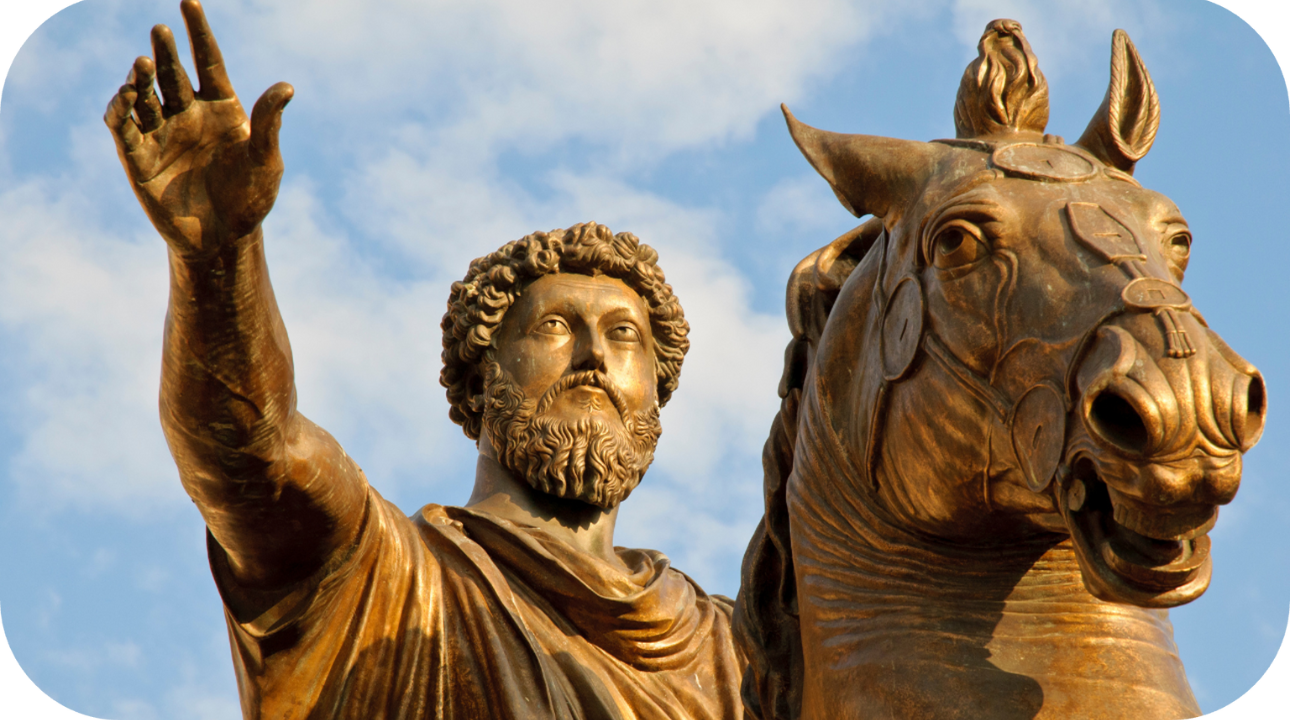In the timeless teachings of Marcus Aurelius, the Roman Emperor and Stoic philosopher, we find profound insights into the interconnectedness of life and our moral responsibility toward one another and the world we inhabit. His meditations offer wisdom that resonates strongly with contemporary environmental concerns, urging us to recognize our place within the vast web of life and to act with integrity and responsibility. This blog post explores how Marcus Aurelius’s reflections on nature’s unity inspire us to adopt sustainable practices and promote environmental stewardship.
The Stoic Perspective on Interconnectedness
Marcus Aurelius, in his reflections, often emphasized the unity of all things in nature. He saw the universe as a single living entity, with each part contributing to the whole. This perspective is beautifully articulated in his Meditations, where he writes about the importance of recognizing our role within the larger cosmos. For Aurelius, understanding the interconnectedness of life meant acknowledging that our actions have far-reaching consequences, affecting not just ourselves but the entire web of existence.
This Stoic view aligns seamlessly with modern ecological principles, which highlight the intricate connections between ecosystems and the delicate balance that sustains life on Earth. The health of our planet depends on these connections, and any disruption can lead to significant environmental degradation. By adopting Aurelius’s holistic perspective, we can better appreciate the importance of sustainable practices that honor and preserve the intricate web of life.
Recognizing Our Role in the Ecosystem
Aurelius’s teachings invite us to reflect on our role within the ecosystem and to recognize that we are not isolated beings but integral parts of a larger whole. This realization carries with it a profound responsibility to act in ways that support the well-being of the planet. Just as Aurelius believed that every individual contributes to the greater good of society, we must also understand that our actions impact the environment and the future of all living beings.
In practical terms, this means adopting sustainable practices that minimize harm and promote harmony with nature. Whether it’s reducing our carbon footprint, conserving natural resources, or supporting biodiversity, each choice we make has the potential to contribute positively to the planet. By embracing our role as stewards of the Earth, we honor the interconnectedness of life that Aurelius so deeply valued.
Embracing Environmental Responsibility
The concept of environmental responsibility is deeply rooted in the Stoic idea of living in accordance with nature. Marcus Aurelius believed that true wisdom comes from aligning our actions with the natural order of the world. This philosophy challenges us to consider the long-term impact of our actions and to prioritize sustainability in our daily lives.
One way to embrace this responsibility is by making conscious choices that reduce waste and conserve resources. Simple actions like recycling, using renewable energy, and choosing sustainable products can collectively make a significant difference. By integrating these practices into our lives, we contribute to a healthier planet and demonstrate our commitment to preserving the intricate web of life that Aurelius cherished.
The Importance of Community and Cooperation
Aurelius also emphasized the importance of community and cooperation in achieving common goals. He understood that the well-being of society depends on individuals working together for the greater good. This principle applies equally to environmental stewardship, where collective action is essential for addressing global challenges like climate change and biodiversity loss.
By fostering a sense of community and collaboration, we can amplify our impact and create a more sustainable world. Initiatives such as community gardens, local conservation efforts, and environmental advocacy groups are examples of how individuals can come together to protect the planet. These collective efforts embody Aurelius’s vision of a society united in purpose, working harmoniously to preserve the interconnected web of life.
Inspiring Future Generations
Aurelius’s reflections on nature’s unity also highlight the importance of inspiring future generations to embrace environmental responsibility. As stewards of the Earth, we have a duty to pass on a legacy of sustainability and respect for the natural world. This means educating young people about the value of nature and empowering them to make choices that support environmental health.
By instilling a sense of stewardship and responsibility in future generations, we ensure that the principles of sustainability continue to guide human behavior. This aligns with Aurelius’s belief in the enduring impact of wisdom and virtue, emphasizing that our actions today shape the world of tomorrow.
The Moral Imperative of Sustainability
For Marcus Aurelius, living in harmony with nature was not just a philosophical ideal but a moral imperative. He believed that virtue and wisdom are inseparable from our relationship with the world around us. This perspective challenges us to consider the ethical dimensions of our choices and to act with integrity in all aspects of life.
Embracing sustainable practices is a reflection of our commitment to this moral imperative. By prioritizing the health of the planet and the well-being of all living beings, we demonstrate our dedication to the Stoic ideals of virtue and wisdom. This commitment not only benefits the environment but also enriches our lives, fostering a deeper connection with the natural world and a sense of purpose in our actions.
Conclusion
Marcus Aurelius’s reflections on the interconnectedness of life and our responsibility to one another provide a timeless guide for environmental stewardship. By recognizing our place within the vast web of life, we are inspired to adopt sustainable practices that honor and preserve the natural world. Aurelius’s philosophy challenges us to act with integrity and purpose, embracing our role as stewards of the Earth and ensuring a sustainable future for all living beings.
In a world where environmental challenges continue to escalate, the wisdom of Marcus Aurelius offers valuable insights into living responsibly and harmoniously with nature. By aligning our actions with the Stoic principles of interconnectedness and environmental responsibility, we can contribute to a more sustainable and compassionate world, fulfilling our duty to protect the intricate web of life that sustains us all.


